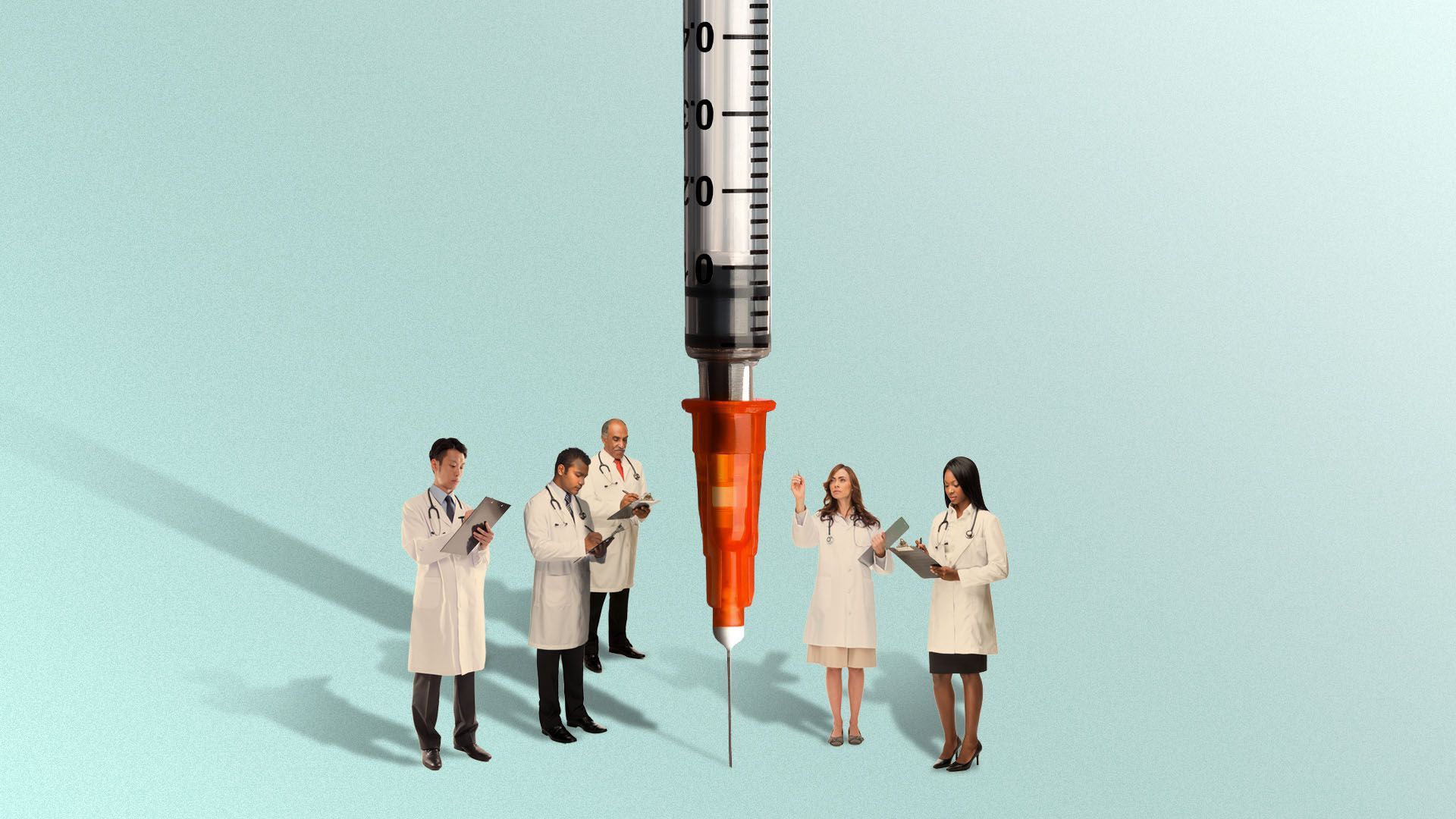Science is winning over politics on coronavirus vaccines
Add Axios as your preferred source to
see more of our stories on Google.

Illustration: Sarah Grillo/Axios
Science has won out over politics in the race for a coronavirus vaccine — for now.
Why it matters: The Food and Drug Administration's end run around the White House on vaccine guidance earlier this week may end up boosting public confidence, which is very important in light of widespread vaccine skepticism.
Driving the news: The FDA on Wednesday posted vaccine guidance that requires drugmakers to monitor clinical trial participants for a median of two months after they receive their final dose.
- The White House had previously been blocking the guidance, as the NYT reported. But the FDA instead included the language in a briefing document released ahead of an upcoming advisory committee meeting. The guidance itself was then cleared and released shortly after.
- President Trump publicly expressed his unhappiness with the move. "New FDA Rules make it more difficult for them to speed up vaccines for approval before Election Day. Just another political hit job! @SteveFDA," he tweeted on Wednesday evening.
"What you got yesterday was basically a 'f--- you' tweet from the president to the agency," said a senior administration official, who added that FDA Commissioner Stephen Hahn had knowingly put his job at risk by working around the White House.
Backdrop: The FDA's emergency authorization of convalescent plasma over the summer, despite little evidence of the treatment's effectiveness, sparked questions of whether the agency was being guided by science, or by Trump's political interests.
- But in this case, the agency has put to bed the politicization question after effectively bumping any vaccine authorization to after the election.
Between the lines: The fact that the drug industry took the FDA's side probably didn't hurt its effort.
- “PhRMA supports any efforts by FDA to provide clarifying guidance and we have engaged with the agency to support bringing greater transparency to the review process for COVID-19 vaccines," PhRMA said in a statement on Tuesday. "We welcome the agency’s efforts to instill confidence in the rigorous safety of these potential vaccines."
The bottom line: Getting a coronavirus vaccine is only the first step back to normal. Even more important is getting people to take it, which may be more likely thanks to the FDA's maneuvering.
